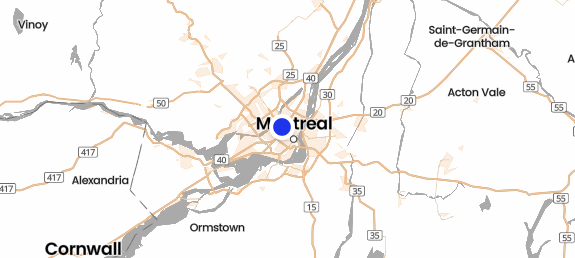
Ai Generated
OpenAI’s SearchGPT: AI-Powered Search Engine Now Available to Free Users
SearchGPT Now Available for Free Users. OpenAI has been taking giant leaps to make AI available to everyone. Such is the case with the AI-powered search tool: SearchGPT. SearchGPT, which was first available to paid subscribers in October 2024, was just made available to every ChatGPT user, regardless of whether they were free-tier. This aligns with the greater goal of OpenAI, democratizing AI technologies, and making them available to many more people.
This was announced during OpenAI’s “12 days of ship-mas” event and marked a milestone in developing AI-powered search tools. With the inclusion of SearchGPT into ChatGPT, OpenAI presents a strong challenge to Google and Bing, among other conventional search engines. The following discussion elaborates on the features, advantages, and implications of this latest release.
What is SearchGPT?
SearchGPT is an AI-powered search engine that harnesses the power of the most advanced OpenAI language models to generate highly contextual and exact results. Unlike typical search engines, SearchGPT focuses more on human-like answers alongside links rather than just linking to websites, as is the norm.
In this update, users on the free tier can now get real-time information on everything from sports scores to updates on stock and breaking news. Whether you need detailed answers or just a quick fact-check, SearchGPT offers a seamless experience within the ChatGPT interface.
Key Features of SearchGPT
- Real-Time Information – The most attracting feature of SearchGPT is its ability to do live data delivery. The model does excellent work in scenarios that require very timely information, such as live sports or market trends, which earlier users had to surf through several websites and apps.
- Mobile-Friendly Interface – For mobile users, SearchGPT provides a layout similar to that of any other search engine. Location-based searches provide comprehensive details such as ratings, hours, images, maps, and directions. For example, the search for “restaurants near me” will give a well-structured list with actionable insights.
- Improved User Engagements – Unlike static search engines, SearchGPT offers users a way to interact with the content by giving answers in conversation. For example, “hotel booking websites,” it doesn’t just recommend links but describe each for better user orientation.
- Integration With Existing Tools – SearchGPT will also easily integrate with ChatGPT. It makes switching between conversational AI and search very seamless for users. The approach also saves the need to work on too many tools and platforms.
How Does SearchGPT Differ From Traditional Search Engines?
The AI-first approach taken by SearchGPT clearly distinguishes it from such search engines as Google or Bing, which heavily rely on algorithmic ranking and matching keywords. SearchGPT seeks to combine natural language understanding with dynamic data retrieval.
For example, instead of a list of pages, it synthesizes information to provide direct and short answers. This makes it especially effective for users in search of certain solutions without having to go through a maze of links.
But SearchGPT is also a threat to traditional search engines. By integrating detailed maps and live updates directly into the ChatGPT interface, OpenAI positions itself as a strong competitor in the search engine space.
Implications for Free Users
SearchGPT now Available for Free Users is a game-changer. It democratizes access to advanced AI tools, allowing individuals who may not afford premium subscriptions to experience the benefits of AI-powered search. This could lead to increased engagement with ChatGPT, ultimately strengthening OpenAI’s ecosystem.
For students, professionals, and casual users alike, SearchGPT opens new horizons. Whether one is to research for some academic purpose, plan a holiday, or keep up with the latest news, users now have a trustworthy companion in ChatGPT.
The Road Ahead for OpenAI
In expanding access to SearchGPT, OpenAI sets a precedent for how AI will be part of everyday life. In the same vein, the company’s efforts reflect a commitment to innovation while maintaining inclusivity. This move also begs questions about competition and sustainability.
This means success for SearchGPT is only going to happen with more user feedback and refinement by OpenAI in their offerings. Innovations such as localized searches and real-time updates hold great promise for the future, but this is really where the actual challenge is: maintaining it.
OpenAI’s announcement to go live with SearchGPT for free users is quite a milestone towards making artificial intelligence tools available to everyone. With an instinctive interface, real-time data retrieval, and user-oriented design, SearchGPT redefines how we interface with search engines.
This bold move not only amplifies the capabilities of ChatGPT but also places OpenAI in a strong position in the search engine market. As more users come aboard with SearchGPT, the limits of AI-powered searches will keep on scaling, paving the way for new ways of information discovery.
Checkout: – Juniper Warns of Mirai Botnet Targeting Default Passwords on SSR Devices



